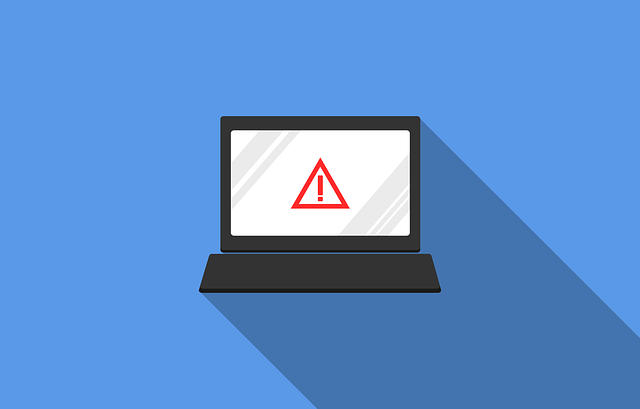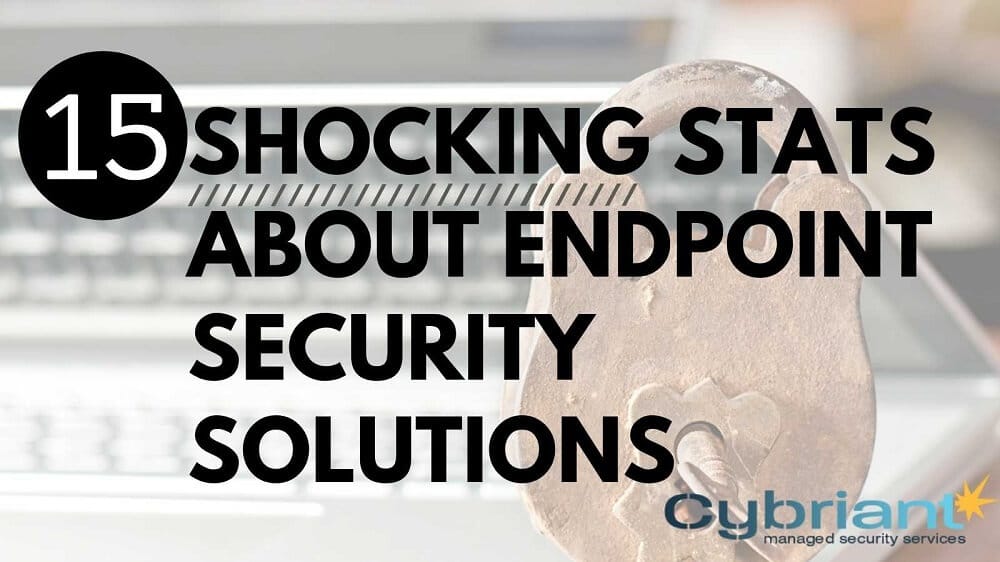Let’s face it…threats against your business are on the rise and your board has zero tolerance for security issues. The stats you’ll see below are shocking, but they can help you understand the benefits of optimizing your security strategy for endpoints with machine learning and artificial intelligence.
What is Endpoint Security?
Endpoint security is a term used to describe a variety of security measures that are employed to protect devices and systems that are connected to the internet or another network. These measures can include antivirus software,firewalls, and spam filters. They can also include measures to protect endpoint devices against ransomware and other types of malware.
When a cyber threat is detected, quick response and remediation is essential to limit impact to your organization’s business operations.
Many IT departments don’t have the resources to completely remediate the threat, or the measures required to regain function are laborious and time consuming.
CybriantXDR remediation capabilities can limit the interruption to your business and restore normal operations rapidly.
What are Common Endpoint Security Risks?
Endpoint security is the practice of protecting devices that are connected to a network. These devices include PCs, laptops, tablets, and smartphones. Endpoint management helps organizations manage and secure endpoints to protect against common threats like malware and ransomware.
Common endpoint security risks include:
Unauthorized access or malicious software attacks from outsiders:
Hackers can attempt to gain access to an organization’s endpoint devices through malicious software such as viruses, Trojans, and worms.
Unsecured networks:
Open or unsecured wireless networks can be vulnerable to attacks from hackers that can intercept data transmissions over the airwaves.
Insider threats:
Endpoint devices are prone to exploitation by employees, contractors, and other trusted individuals due to their privileged access.
Unpatched or outdated software:
Outdated versions of operating systems or applications can contain security vulnerabilities that hackers can exploit.
Poor user practices:
Users who do not follow the best rules such as strong passwords and two-factor authentication can leave devices vulnerable to attacks
Physical threats:
Endpoints can be physically compromised if they are left in public places or stolen.
To protect against these risks, organizations should use a comprehensive endpoint security solution that includes user authentication disk encryption, antivirus protection, patch management, and more. Proper endpoint security protocol should also be implemented across the organization to ensure users are following best practices and that endpoints are properly secured. Doing so will help to prevent costly security breaches.
Furthermore, organizations should regularly audit their endpoint security solutions and update the software as needed. This ensures that the latest threat protection is in place and any potential vulnerabilities are quickly addressed. Additionally, staff should be trained on how to securely use the endpoint security suite and devices and protocols should be enforced to ensure devices remain secure.

What are Endpoint Security Solutions?
When a device is connected to your network, it’s considered an endpoint. Hackers see endpoints as an easy point of entry to your organization’s operating systems. Endpoint security solutions are services around securing endpoints from those hackers. Endpoint security solutions have evolved from Antivirus to Endpoint Detection and Response (EDR), to Managed Detection and Response (MDR), and XDR.
Cybriant’s Endpoint Security Solution is called Managed Detection and Remediation (MDR) because our team helps our clients to remediate any issues discovered through the MDR process.
What is Managed EDR Security? Read More Here
As the volume and sophistication of cybersecurity threats have steadily grown, so needs for more advanced endpoint security solutions. Today’s endpoint protection systems are designed to quickly detect, analyze, block, and contain cyber attacks already in progress. To do this, they need to collaborate with other security technologies to give administrators visibility into advancedcybersecurity threats and to speed detection and remediation response times.
Prevent security breaches with advanced endpoint detection, behavioral analysis, and response. Our team utilizes artificial intelligence that will help stop advanced threats and malware at the most vulnerable point – the endpoint.
Cybriant uses a “prevention-first” technology – we stop attacks before they cause harm, vs allowing attacks to happen, then clean up the mess. By reducing the number of endpoint security products deployed on the endpoint, customers gain operational efficiencies by not having to manage signatures, policies, or deployments of additional endpoint protection software.

What is Considered an Endpoint?
To put it simply, an endpoint is any device that communicates with endpoint devices on the network to which it is connected. Here are some examples of endpoints:
- Laptops
- Desktops
- Mobile Phones
- Tablets
- Servers
- Virtual Environments
According to Gartner, “Organizations investing in endpoint security tools are purposefully moving from an ‘incident response’ mentality to one of ‘continuous monitoring’ in search of incidents that they know are constantly occurring.
What is Endpoint Protection?
Endpoint protection is a term used to describe a variety of security measures that are employed to protect devices and systems that are connected to the internet or another network. These measures can include antivirus software,firewalls, and spam filters for known and unknown malware. They can also include measures to protect against ransomware and other types of malware.

Endpoint Protection Tools
There are several different modern endpoint protection platforms and toolsthat organizations can use to protect their networks and devices. Some of the most popular options include:
1. Antivirus software:
This type of software is designed to detect and remove viruses, worms, and other types of malware from your devices. It can also help to prevent these threats from infecting your devices in the first place.
2. Firewalls:
A firewall is a system that helps to protect your network and connected devices from unauthorized access. It can also help to prevent malicious software from infecting your devices.
3. Spam filters:
These tools can help to prevent unwanted email messages from reaching your inbox. They can also help to protect your devices from being infected with malware that is embedded in these messages.
4. Ransomware protection:
This type advanced protection of tool can help to protect your devices from being infected with ransomware. It can also help to prevent you from accidentally downloading and installing this type of malware on your devices.
5. Malware removal:
This type of tool can help to remove malware that has already infected your devices.
6. Endpoint Detection and Response:
Endpoint detection and response (EDR) is a type of security measure that helps to detect and respond to security threats that target devices and systems that are connected to the internet or another network. EDR tools can help to identify and investigate suspicious activity on your network. They can also help to prevent malicious software from infecting your devices
How Do You Secure An Endpoint?
It’s vital to start with an integrated endpoint solution and protection platform (EPP). But once you have decided on an EPP, it needs to be monitored around the clock. Here’s Cybriant’s MDR process:
- Our expert security analysts monitor and record all the events that occur on your endpoints. Our team focuses on relevant threats that attempt data exfiltration or modification. When files attempt to execute these suspicious processes an alert is triggered and the attack is halted in real-time.
- When a credible threat is detected, our system will retrieve the process history, and our team will analyze the chain of events in real time and determine the validity of the threat.
- You’ll receive alerts when threats are detected along with advice and insight from our cybersecurity team to help you mitigate and respond to the threat.
- Once identified, the malicious activity is immediately stopped in its tracks, and our team guides you through the remediation. This remediation process provides astonishing insight into the data of the threat.
You’ll be able to help your organization reduce its attack surface by learning how you’ve been compromised. Find out more about MDR from Cybriant:
15 Shocking Stats About Endpoint Security Solutions
There are at least 5.8 billion enterprise endpoints in use in 2020 Source
68% of organizations were victims of endpoint attacks in 2019 Source
91% of cyberattacks start with phishing, and the top reasons people are duped by phishing emails are curiosity (13.7%), fear (13.4%), and urgency (13.2%), followed by reward/recognition, social, entertainment, and opportunity. Source
The endpoint security market is expected to grow at a CAGR of 5.9% from 2020 to reach $18.6 billion by 2027. Source
Only 53% of employer-owned mobile devices are centrally managed.Whereas 77% of servers and approximately 73% of both laptops and desktops are centrally managed. For employee-owned devices or BYOD, only 27% of mobile devices have a centralized management console, and 18% of laptops are centrally managed. Source
Almost 15% of organizations are not using any endpoint security solution. Source
Employer-owned desktops and laptops are the most often compromised endpoints.
The types of endpoints reported being compromised – employer-owned desktops (69% total), and laptops (67%) top the list, of most frequently impacted, followed by servers (51% for dev, database, email, web, DNS, etc. and 47% for line of business/legacy servers), employee-owned mobile devices (36%), employee-owned laptops (35%) and cloud servers (29%)/ applications (28%). Source
42% of all endpoints are unprotected at any given time. Source
The FBI recently reported that the number of complaints about cyberattacks to their Cyber Division is up to as many as 4,000 a day. That represents a 400% increase from what they were seeing pre-coronavirus. Source
20% of IT managers who were victims of one or more cyberattacks last year can’t pinpoint how the attackers gained entry, and 17 percent don’t know how long the threat was in the environment before it was detected. Source
Organizations are spending 85% of the time investigating non-issues, equivalent to around 41 days each year. Source
For 54% of organizations, Endpoint Detection and Response (EDR) was money wasted as they didn’t have the resources to manage the tool properly. Source
Email accounts for 94% of malware delivery methods – web-based attacks account for 23% of cases, while Office documents were used in 45% of cases (Source)
By 2021, cybercriminals will cost the world $11.4m each minute, fueled by greater ease of entry into cybercrime and more opportunities to leverage global events like COVID-19 in successful and threat intelligence campaigns (Source)
68% of organizations reported that the frequency of attacks against endpoints has increased over the past 12 months. (Source)
Continuous Endpoint Management
Continuous endpoint management is an approach to securing devices and networks that focuses on the continual monitoring and management of endpoints. This type of security strategy is typically more effective than a traditional, one-time security audit as it enables organizations to proactively detect potential threats before they can cause damage. It also allows for more efficient response times in the event of an attack.
The benefits of continuous endpoint management extend beyond potential security threats, as it also can improve the user experience. It allows organizations to quickly identify and resolve issues related to employee-owned devices, such as mobile phones or laptops. Additionally, it can help ensure that these devices comply with relevant internal policies and external regulations.
Continuous endpoint management is typically provided by a managed security service provider. This type of provider is responsible for setting up secure connections between endpoints and ensuring that these connections are maintained on an ongoing basis. They also provide real-time monitoring of the system to detect any suspicious activity or potential threats, as well as timely response plans in case a security incident does occur.
Continuous endpoint management is an important part of any organization’s overall security strategy. It ensures that all devices and networks are kept secure on an ongoing basis, which helps reduce the risk of a successful attack. With the help of a managed security service provider, organizations can rest assured that their endpoints are protected from potential threats and that their employees have access to the resources they need.
Mobile Device Management
Mobile device management (MDM) is another key component of continuous endpoint management. MDM enables organizations to manage and secure employee-owned devices, such as phones and laptops. It allows them to take device control, set up access controls, enforce security policies, and remotely wipe devices in the event of theft or loss.
MDM can also help organizations with compliance requirements by maintaining a comprehensive audit trail of all devices and their activities. This provides organizations with valuable insights into how their endpoints are being used, allowing them to better understand potential risks and take measures to mitigate them.
MDM is a powerful tool for ensuring that employee-owned devices remain secure on an ongoing basis. By combining continuous endpoint management with MDM, organizations can take a proactive approach todefending their systems and data.
More About Artificial Intelligence (AI) to Protect Your Endpoints
Machine learning is a sub-discipline of artificial intelligence that focuses on teaching machines to learn by applying algorithms to data. The terms AI and ML are often interchanged. (Source)
Machine learning is already raising the bar for attackers. It’s getting more and more difficult to penetrate systems today than it was a few years ago. In response, attackers are likely to adopt ML techniques to find new ways to get through to your systems. In turn, security teams will need to utilize ML defensively to protect network and information assets as well as to enhance enterprise security solutions.
Artificial Intelligence (AI) leverages the power of machines to dissect malware’s DNA. AI then determines if the code is safe to run.
Using AI
Legacy antivirus technology based on signatures is outdated. Today’s enterprise security solutions do not require any previous knowledge about a malicious binary file to identify its intention.
Only an artificial intelligence approach can predict, identify, and prevent both known and unknown cyber threats from executing or causing harm to endpoints. On average and in hundreds of tests, by using enterprise security solutions with AI, you can stop 99% of known and unknown threats together.
By using AI-based technology, you can proactively prevent the execution of advanced persistent threats and malware, enabling a level of security that far exceeds the effectiveness of solutions deployed throughout enterprises, governments, and institutions worldwide.
Unlike reactionary signature, heuristics, behavior monitoring, and sandboxing, which require an Internet connection and constant updates, enterprise security solutions built on artificial intelligence can analyze a file’s characteristics and predict whether it is safe or a threat before the file executes on the localhost.
AI in Action
Simplifying your endpoint security solutions while maintaining a secure environment can make your security team’s work easier, and their efforts far more efficient. By incorporating an AI-based technology into your endpoint security infrastructure and endpoint protection platforms, you can consolidate and distill the security tools your team uses down to a manageable set, in turn reducing redundancies, eliminating high infrastructure expenses, and improving your team’s ability to more proactively secure your endpoints.
Here are several examples of AI-based enterprise security solutions in action:
Malicious Executables
The best way to protect your endpoints from attackers is to identify and stop the attack before it ever starts. By using enterprise endpoint security solutions, you can use field-proven AI to inspect any application attempting to execute on an endpoint before it executes. Within milliseconds, the machine learning model running on the endpoint determines if the executable is malicious or safe. If malicious, the executable is blocked from running, thwarting the attacker’s attempt to compromise the endpoint.
Unauthorized Scripts
Scripts are quickly becoming the tool of choice for many attackers for several reasons. First, for novice attackers, malicious scripts are readily available in the cybercrime underworld, which makes it easy to find one that meets the attacker’s needs. Additionally, scripts are often difficult for some endpoint security providers and products to detect, as there are many non-threat uses for scripts. With AI-based endpoint security solutions, you get built-in script protection, meaning you maintain full control of when and where scripts are run in your environment, reducing the chances that an attacker can use this attack vector to cause harm to your business.
Fileless Malware
Memory-based attacks are on the rise as attackers realize the ease with which memory can be exploited to achieve their goals. Many endpoint security suites and products cannot prevent these types of attacks, but with AI-based endpoint security solutions, memory protection is included. When an attacker attempts to escalate privileges, undertake process injection, or make use of an endpoint’s memory inappropriately by other means, your endpoint solution will identify and prevent it immediately.
Malicious Email Attachments
Phishing attacks are still one of the most effective ways attackers gain access to an endpoint and your business. Employees unwittingly open malicious attachments, thinking they are legitimate, and enable attackers to undertake any number of malevolent actions. With AI-based endpoint security solutions, weaponized attachments are identified and blocked automatically. If a document, for example, includes a VBA macro deemed to be risky, it will be blocked from executing. This advanced threat protection, also adds a layer of security, protecting employees from becoming the victim of an attacker, and introducing a compromise to your environment.
Devise Usage Enforcement
USB devices are littered across your business. Most of these devices are useful tools, enabling employees to share files with others quickly and efficiently. However, these devices can cause significant damage to your environment if they are loaded with malicious malware or are used to transfer sensitive dataoutside of your business. To combat this attack vector, AI-based endpoint security solutions have built-in device usage policy enforcement. This capability allows you to control which devices can be used in your environment. This ultimate control means that you can limit the chance that a USB device enables an attacker to successfully execute an attack or exfiltrate data.
Endpoint Protection Solutions: Rule-Based
There are several ways to identify potential threats and compromises. First, security analysts can perform searches across endpoints to identify suspicious artifacts, and through manual investigation, determine that a threat exists. While there is tremendous value in this process, it simply does not scale across an enterprise. To root out sophisticated threats hidden on endpoints, you must use an automated approach to threat hunting and detection.
A rule-based engine running on the endpoint and delivered with a set of curated rules will continuously monitor the endpoint looking for suspicious behavior. When detected the solution can take customized response actions in real-time with no intervention from the security team.
No business, no matter what security controls are in place, can guarantee that an attack will never be successful. This means you must be prepared to respond if an attack is detected. By working with AI-based endpoint security solutions imagine this: when an attack is identified, with just a few clicks, you can quarantine files, disabling their ability to be used anywhere in your environment.
If you determine an endpoint is harmful, you can also take an aggressive containment move and lock down the endpoint, disabling its ability to communicate with any other endpoint. Identifying a security concern is important, but having the ability to respond is also critical, and when you work with Cybriant for endpoint threat detection and response, you now have that option.
You can also configure the solution to automatically respond to detected threats, significantly reducing dwell time and your attack surface. True endpoint security does not derive from prevention or advanced threat detection alone. To face the constant and variable attacks presented by the modern threat landscape, organizations must have both capabilities in place and be deeply integrated to keep pace with attackers.
Endpoint Security Tools
As remote working is increasing rapidly, hackers have numerous opportunities to attack their victims to steal their essential data from the loopholes that exist in network security. With the increase of endpoints like laptops, smartphones, tablets, and other mobile devices, the risk of losing data is also increasing day by day.
Hackers are always coming up with new ways to gain access to web networks to steal priceless information or manipulate employees into giving out perceptive data. To get rid of all these stumbling enigmas and to keep secure sensitive data of your organization, it’s essential to protect any endpoints that are connected to your corporate networks.
Endpoint Security Software
One of the most effective ways to ensure continuous endpoint management is by deploying endpoint security software. This type of software provides comprehensive coverage against malicious threats, including malware, ransomware, and phishing attacks. It also helps organizations maintain compliance with data protection regulations such as GDPR and CCPA.
Sentinel One is one example of a powerful endpoint security solution that enables organizations to detect and respond to cyber threats in real-time. With Sentinel One, organizations can protect their endpoints from a variety of malicious threats with minimal effort. The software also provides advanced analytics capabilities that enable IT teams to better understand the behavior of their user base, monitor system performance, and take proactive measures to prevent possible security breaches. In addition, Sentinel One’s intuitive user interface makes it easy for organizations to stay on top of their security needs without having to dedicate too much time or resources.
At the end of the day, endpoint security software is a must-have for any organization looking to protect its data and maintain compliance with various regulations. With robust solutions like Sentinel One, along with the power of Cybriant’s 24/7 monitoring services, they can be assured that their systems are safe and secure.
How to Select An Endpoint Security Solution
When selecting an endpoint security solution, it is important to consider a few factors. First and foremost, organizations should evaluate the vendor’s reputation and trustworthiness. Additionally, they should look for solutionsthat offer automation capabilities and advanced threat prevention measures. Finally, it is also important to take into account scalability, cost-effectiveness, and user experience when making a decision.
Conclusion
Endpoint security solutions are becoming increasingly important for any organization looking to protect their data and assets from malicious actors. By investing in a comprehensive endpoint security solution, organizations can better detect and prevent threats before they become damaging security breaches.
Top Five (5) Enterprise Endpoint Protection Platforms:
- Bitdefender
- SentinelOne
- ESET Endpoint Security
- Symantec Endpoint Protection
- CrowdStrike Falcon
Read all about the Top 5 Endpoint Security Tools.



